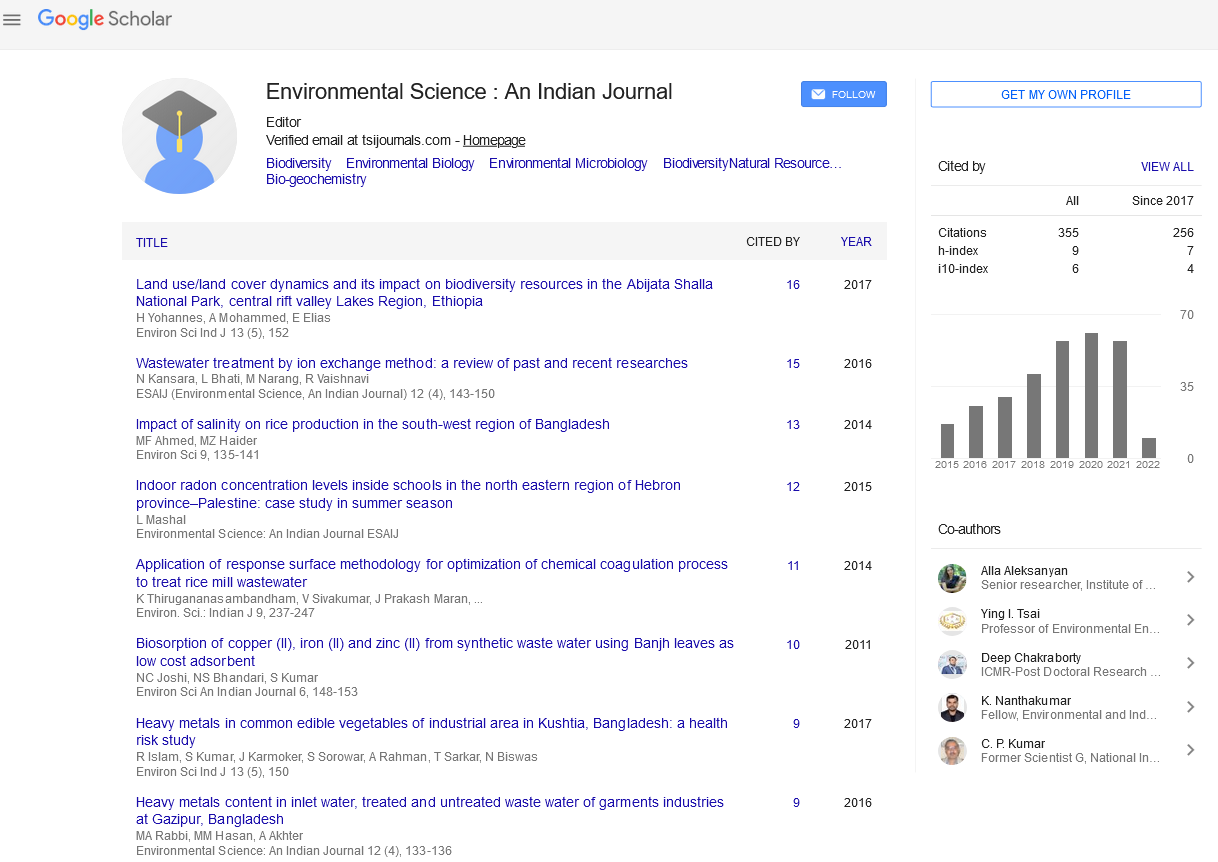Abstract
Assessment of effluent quality for irrigation: a case study of gmrit sewage treatment plant
Author(s): P.Mythili, Bhagya lakshmi Kanchu, Kalpana Polipalli, King PulipatiThe demand for freshwater is increasing due to growing population and their increased needs. Wastewater is emerging as a potential source for demand management after essential treatment. The treated wastewater can be used for irrigation purpose due to increased water scarcity. This study assessed the water quality of effluent sample collected from sewage treatment plant ofGMRIT. The present works was carried out by collecting effluent water samples to assess the effluent water quality for its suitability for irrigation purpose. The main aimof this study is to compare the effluent water quality with reference to irrigation standards. Water quality parameters such as pH, turbidity, chlorides (Cl), sodium adsorption ratio, BOD, COD, iron (Fe), electrical conductivity (E.C), sulphate (SO4 2-), nitrates (NO3 -), and zinc (Zn) were analyzed. These parameters were estimated using standard procedures and the results were compared with irrigation quality standards. The results indicated that the some of the water quality parameters that is zinc and COD which exceeds the permissible limits of irrigation standards.

